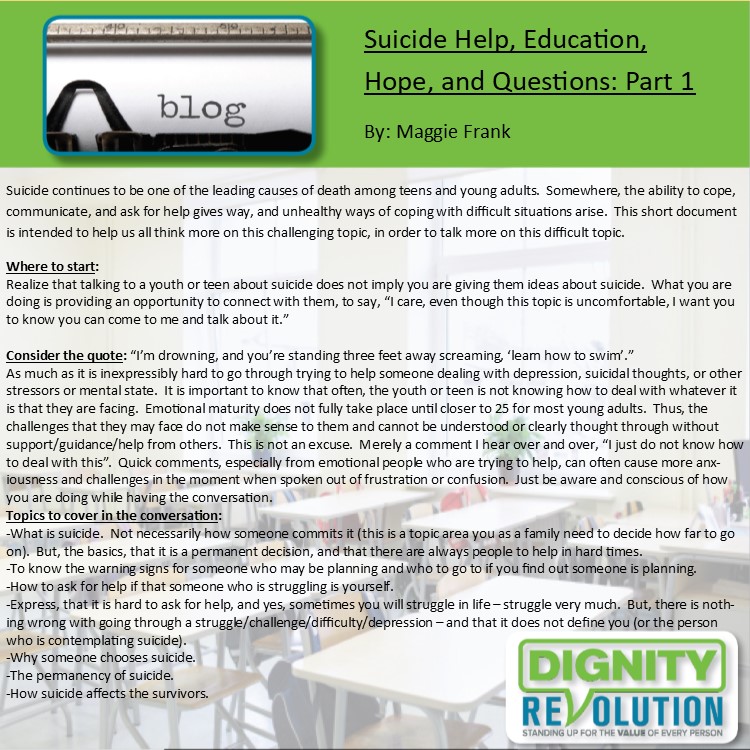Maggie Frank, LPC
Ardent Counseling
Maggie@ardentcounselingfv.com
Suicide continues to be one of the leading causes of death among teens and young adults. Somewhere, the ability to cope, communicate, and ask for help gives way, and unhealthy ways of coping with difficult situations arise. This short document is intended to help us all think more on this challenging topic, in order to talk more on this difficult topic.
Where to start:
Realize that talking to a youth or teen about suicide does not imply you are giving them ideas about suicide. What you are doing is providing an opportunity to connect with them, to say, “I care, even though this topic is uncomfortable, I want you to know you can come to me and talk about it.”
Consider the quote: “I’m drowning, and you’re standing three feet away screaming, ‘learn how to swim’.”
As much as it is inexpressibly hard to go through trying to help someone dealing with depression, suicidal thoughts, or other stressors or mental state. It is important to know that often, the youth or teen is not knowing how to deal with whatever it is that they are facing. Emotional maturity does not fully take place until closer to 25 for most young adults. Thus, the challenges that they may face do not make sense to them and cannot be understood or clearly thought through without support/guidance/help from others. This is not an excuse. Merely a comment I hear over and over, “I just do not know how to deal with this”. Quick comments, especially from emotional people who are trying to help, can often cause more anxiousness and challenges in the moment when spoken out of frustration or confusion. Just be aware and conscious of how you are doing while having the conversation.
Topics to cover in the conversation:
-What is suicide. Not necessarily how someone commits it (this is a topic area you as a family need to decide how far to go on). But, the basics, that it is a permanent decision, and that there are always people to help in hard times.
-To know the warning signs for someone who may be planning and who to go to if you find out someone is planning.
-How to ask for help if that someone who is struggling is yourself.
-Express, that it is hard to ask for help, and yes, sometimes you will struggle in life – struggle very much. But, there is nothing wrong with going through a struggle/challenge/difficulty/depression – and that it does not define you (or the person who is contemplating suicide).
-Why someone chooses suicide.
-The permanency of suicide.
-How suicide affects the survivors.

